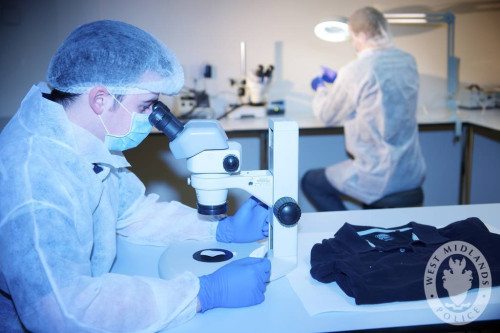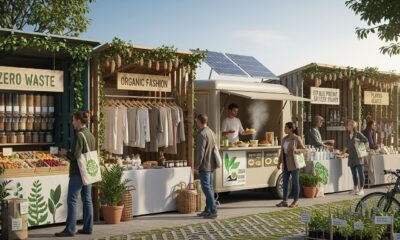

Environment
Sustainability and Science: How Eco-Friendly Labs are Contributing to a Greener World
There’s absolutely no question that scientific laboratories are beneficial and much-needed in the world. It’s in scientific and biological research facilities that research is conducted and implemented, and cures and medicines are created. And, because the attraction to science is to make the world a better place, many laboratories are pursing noble goals beyond their work, such as going green in the lab.
Across the country, science labs are stepping up their game in an effort to contribute to a greener world. In an effort to be more eco-friendly, labs are gravitating toward projects that help the environment as well as participating in research activities that are less impactful.
Designing an Eco-Friendly Lab:
An eco-friendly lab doesn’t waste energy; in fact, reducing energy waste is a top priority. That’s because laboratories are notorious for their energy usage. For example, Harvard University is more than 25 million square feet and laboratories account for only 21 percent of that space; yet, those labs consume nearly half the campus’s energy.
“It’s a very energy-intensive space,” says Jamie Bermis, the Faculty of Arts and Sciences Green Program Coordinator at Harvard. Simply put, laboratories consume the majority of campus utilities, as well as business labs, which also hemorrhage energy.
If possible, you may want to consider moving your lab to a more efficient location or using a service to house your lab’s equipment while you renovate. With today’s improved sciences (at-temperature backup freezers, electrical systems, etc.), lab relocation is safer than ever and an efficiently designed laboratory is going to cost less to operate.
Here are some eco-friendly ideas for the lab:
· Close the sashes on unused chemical fume hoods
· Defrost freezers
· Shut off lights and other power guzzlers at the end of the day
· Participate in multiple batch rinses instead of running the water all day
· Pick green chemicals over non-green ones
Eco-Friendly Labs to Look Up To:
Some campus labs are already as green as they can be. Or, they’re on their way to reducing energy waste and thus reducing costs. These are a few of the best performing labs, and you can emulate their behaviors to make your lab that much more sustainable.
Harvard University FAS Sherman Fairchild Laboratory:
Harvard has always set a precedence in terms of eco-friendliness. The FAS Sherman Fairchild Lab is one of the most recent built-on-campus projects that is unique in its composition. In fact, 91 percent of the lab’s building materials are recycled. It was also built so that 97 percent of the lab is exposed to natural sunlight. Additionally, the lab was built using low VOC paints and sealants.
Pomona College Richard C. Seaver Biology Building:
Another amazing eco-friendly lab is Pomona College’s Biology Building. Just like the Harvard lab, the biology building was built in a way that attracts natural sunlight, which helps reduce the amount of energy that’s wasted on lighting. Additionally, the school is outfitted with solar panels and concrete floors. One of its most unique features is the electric vehicle charging station located outside the building.
Aberystwyth University Institute of Biological, Environmental, and Rural Sciences (IBERS):
Not only was IBERS constructed from approximately 80 percent recycled material, its primary use is to research and develop ways to make the planet greener. The laboratory is mainly focused on climate change, and looks for ways to help ensure humanity successfully survives it. The IBERS building has a natural ventilation system and a rainwater harvesting system. Builders created IBERS hoping it would inspire students to become more focused on the environment.
Overall, there are countless reasons your lab should go green. It will lower costs, and it’s an exceptional way to give back to the earth and your community. Even little changes make a world of difference, so consider auditing your greenness and implementing some changes today.


 Environment12 months ago
Environment12 months agoAre Polymer Banknotes: an Eco-Friendly Trend or a Groundswell?

 Features11 months ago
Features11 months agoEco-Friendly Cryptocurrencies: Sustainable Investment Choices

 Features12 months ago
Features12 months agoEco-Friendly Crypto Traders Must Find the Right Exchange

 Energy11 months ago
Energy11 months agoThe Growing Role of Solar Panels in Ireland’s Energy Future




























